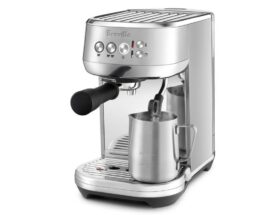
Is Organic Coffee worth the effort? Weighing the Benefits
Organic coffee has taken the spotlight in recent years, with more and more people opting for this sustainable and healthier alternative. In this blog, we delve into the world of organic coffee and explore the differences between organic and conventional production methods, covering everything from farming techniques to environmental impact. We also discuss the health benefits of organic coffee and provide insights on choosing the best organic coffee brands. Join us on this journey as we unravel the nuances of organic coffee and delve into the social and ethical implications of making sustainable coffee choices.
Table of Contents
- Decoding Organic Coffee: Weighing the Benefits and Considerations
- Frequently Asked Questions
- 1. Is organic coffee worth it?
- 2. What are the differences between organic and conventional coffee?
- 3. How is organic coffee produced?
- 4. What is the environmental impact of organic coffee?
- 5. What are the health benefits of organic coffee?
- 6. How do I choose organic coffee brands?
- 7. What are the best organic coffee brands?
- 8. How can I brew organic coffee at home?
- 9. What are the challenges in the organic coffee industry?
- 10. What are the opportunities in the organic coffee market?
- 11. What are the social implications of purchasing organic coffee?
- 12. Why is sustainable coffee consumption important?
- Wrap Up
Decoding Organic Coffee: Weighing the Benefits and Considerations
Welcome to the world of organic coffee, where sustainability and quality go hand in hand. In this blog post, we will explore the differences between organic and conventional coffee production, examining various factors that make organic coffee worth considering. From farming methods to environmental impact, and health advantages to selecting top-quality brands, we will uncover the nuances of organic coffee. So grab your favorite mug and join us on this journey to unravel the intricacies of organic coffee and make informed choices for your sustainable coffee experience.
Differences Between Organic and Conventional Coffee
Organic coffee is grown without the use of synthetic fertilizers, pesticides, or genetically modified organisms (GMOs). On the other hand, conventional coffee is often exposed to these chemicals, which can have harmful effects on the environment and human health. By opting for organic coffee, you are choosing a cleaner and more sustainable option.
Organic Coffee Production Methods
The production methods for organic coffee focus on maintaining soil fertility, conserving water, and supporting biodiversity. Organic coffee farmers employ techniques like composting, crop rotation, and shade-grown farming to promote natural ecosystems and avoid harmful practices. These methods contribute to the overall quality and taste of organic coffee.
Environmental Impact of Organic Coffee
Choosing organic coffee can have a positive impact on the environment. Organic coffee farming practices help prevent soil erosion, protect water sources from pollution, and preserve biodiversity. By supporting organic coffee, you are advocating for sustainable agriculture and contributing to the preservation of natural habitats.
Health Benefits of Organic Coffee
Organic coffee is not only better for the environment but also for your health. Since it is grown without synthetic chemicals, organic coffee reduces your exposure to potentially harmful substances. Additionally, organic coffee has higher antioxidant levels, which may have several health benefits, such as reducing the risk of chronic diseases and boosting your immune system.
Did you know that organic coffee is not just good for you, but it's also good for the environment? Organic coffee production methods prioritize sustainable farming practices, such as using natural fertilizers and avoiding harmful pesticides. By choosing organic coffee, you are not only safeguarding your health, but you're also supporting a more eco-friendly and sustainable coffee industry.
Frequently Asked Questions
1. Is organic coffee worth it?
Yes, organic coffee is definitely worth it. It is grown without the use of synthetic pesticides, herbicides, and fertilizers, making it a healthier option for both consumers and the environment. Additionally, organic coffee production methods promote biodiversity and protect the livelihoods of coffee farmers.
2. What are the differences between organic and conventional coffee?
The main differences between organic and conventional coffee lie in the farming methods and the use of chemicals. Organic coffee is grown without synthetic chemicals, whereas conventional coffee is cultivated using synthetic pesticides, herbicides, and fertilizers. Organic coffee also usually undergoes stricter quality and certification standards.
3. How is organic coffee produced?
Organic coffee is produced using natural farming techniques. This includes using organic fertilizers, compost, and natural pest control methods. Coffee farmers also follow specific guidelines to ensure the beans are grown without the use of synthetic chemicals and GMOs.
4. What is the environmental impact of organic coffee?
Organic coffee production has a lower environmental impact compared to conventional coffee. By avoiding the use of synthetic chemicals, organic farming methods help preserve soil fertility, promote biodiversity, and protect water sources. This leads to a healthier ecosystem and less pollution.
5. What are the health benefits of organic coffee?
Organic coffee is believed to have higher levels of antioxidants compared to conventional coffee. It is also free from residues of synthetic chemicals, which may have harmful effects on health. Drinking organic coffee can contribute to a healthier lifestyle and reduce the risk of exposure to harmful substances.
6. How do I choose organic coffee brands?
When choosing organic coffee brands, look for certifications such as USDA Organic or Fair Trade. These certifications ensure that the coffee has been produced according to strict organic standards and fair labor practices. Additionally, consider the flavor profile and quality reviews to find a brand that aligns with your preferences.
7. What are the best organic coffee brands?
Some popular organic coffee brands include Kicking Horse, Equal Exchange, Café Don Pablo, and Allegro Coffee. These brands consistently receive positive reviews for their flavor, quality, and commitment to organic and sustainable practices.
8. How can I brew organic coffee at home?
You can brew organic coffee at home using various methods such as pour-over, French press, or espresso machine. Remember to use fresh, filtered water and grind your organic coffee beans just before brewing for the best flavor. Experiment with different ratios and brewing times to find your preferred taste.
9. What are the challenges in the organic coffee industry?
Challenges in the organic coffee industry include ensuring consistent organic certification worldwide, combating pests and diseases without synthetic chemicals, and maintaining fair prices for farmers. Additionally, organic coffee farmers often face competition from conventionally grown coffee, making it crucial to support sustainable practices.
10. What are the opportunities in the organic coffee market?
As consumer demand for organic and sustainable products increases, there are significant opportunities in the organic coffee market. This includes expanding the availability of organic coffee in stores and cafes, supporting direct trade relationships with farmers, and educating consumers about the benefits of choosing organic coffee.
Purchasing organic coffee supports fair trade practices and helps improve the livelihoods of coffee farmers. It ensures that farmers are paid fair prices for their hard work and encourages sustainable farming practices, which in turn benefit local communities and help preserve their way of life.
12. Why is sustainable coffee consumption important?
Sustainable coffee consumption is important because it promotes environmental protection, fair labor practices, and the long-term viability of the coffee industry. By choosing organic coffee and supporting sustainable farming methods, consumers can contribute to a healthier planet and make a positive impact on the lives of coffee farmers.
Wrap Up
Decoding the world of organic coffee has revealed a multitude of benefits and considerations. From understanding the differences between organic and conventional coffee production to exploring the environmental impact and health advantages, we’ve delved deep into the intricacies of the organic coffee industry.
By choosing organic coffee brands that prioritize flavor, quality, and certifications, you can ensure a sustainable and ethical coffee experience. Whether you’re brewing it at home or indulging in a cup at your favorite café, organic coffee offers a unique taste and freshness that is worth the effort.
As we navigate the challenges and opportunities within the global organic coffee market, it’s crucial to recognize the social implications of our coffee choices. Supporting organic coffee not only benefits farmers and their communities, but also promotes a more sustainable and environmentally friendly coffee industry.
We hope this journey through the world of organic coffee has empowered you to make informed choices and explore the wide range of flavors and experiences that await. We invite you to leave a comment below and share your thoughts on organic coffee or any other coffee-related topics you’d like us to explore further.






